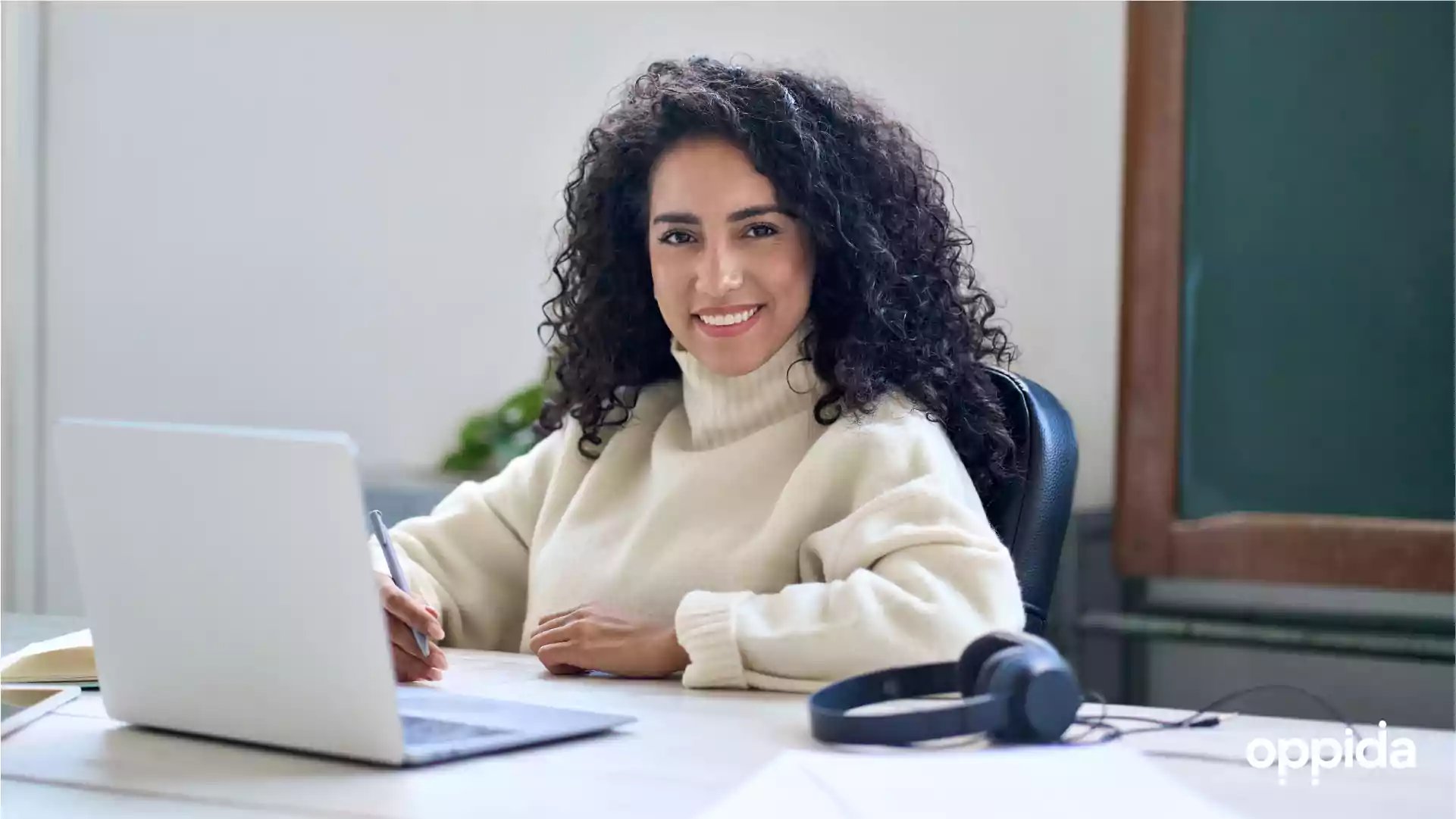In today's digital age, it’s very likely that the first thing you do in the morning when you wake...
Self-taught marketer: learning outside of university
In her conversation with Tyrone Staben, Bianca Raby, CEO of Oppida, explores the potential benefits of self-taught education, learning outside of university without pursuing a degree.

Tyrone’s story of pursuing digital marketing on his own terms through online resources demonstrates the power of intrinsic motivation and passion in driving successful self-taught learning. While he acknowledges the value of curated courses for their organisation and accessibility, Tyrone emphasises the importance of exploring different perspectives and diverse experiences to expand knowledge.
Through their discussion of the pros and cons of university degrees and self-taught education, micro-credentials, and short courses, Bianca and Tyrone raise questions about the role of educators in curating learning experiences and the potential for self-taught education to provide a viable alternative to formal education.

The interview underscores the transformative power of self-taught education in enabling individuals to pursue their interests and acquire the necessary skills to achieve their goals.
Watch the full interview here:
Video Transcript
Bianca:
Hi, I’m Bianca Raby, and I’m here with Tyrone Staben, who’s going to talk to us a bit about his decision-making process around whether or not he should or should not go to university. So good to have you here today, Tyrone. It’s good to speak to an actual potential learner, because as learning designers and educators, we’re talking about you guys, but we don’t very often actually speak to you. So I’m very excited today to ask you a few questions because you’ve decided not to go to university, is that correct?
Tyrone:
Yes, so far.
Bianca:
So far. So you are 22, and you’ve decided that instead of university, you have been self training yourself, right. You’ve been self learning through, I guess, the internet.
Tyrone:
That’s right.
Bianca:
Yeah. In the digital marketing space, right? So, talk to me about the journey of deciding that. What made you decide to just go on your own?
Tyrone:
I guess it goes back to what I committed my life to so far, and that’s been my sport, Taekwondo. So, it’s a big training commitment. And so, unlike other people my age, since I’ve had to move out of home for it and all that, I haven’t had the opportunity time wise to actually go and do a degree. So what I’ve ended up doing, because I do love learning new things, and I do want to upskill myself in as many ways as possible. So, the alternative has been just to learn things on the Internet. So, YouTube. I actually haven’t bought courses to learn what I’ve learned.
I’ve talked to people, I found networks and talked to people in the digital marketing space. So that’s how I learned a lot of what I do. And because I was so willing to learn, it was on my own terms and I didn’t have to show up. I feel like I was motivated, and they wanted to feed that passion as well. So that helped me a lot.
And just being curious, and whenever I have a question, just the convenience of having YouTube, where you ask a question and you get it answered, and you just keep building bit by bit.
Bianca:
So have you seen any value in actually paying for a curated course in your space?
Tyrone:
I would say there’s definitely value to it in the case that it’s just convenient and accessible. So the way it’s organised – that’s very helpful because when you don’t have that organisation, it just makes it a longer process to dig up what you need to learn on the internet. So, it can be a bit of a longer process to learn new things when it’s not all collated together. So that’s the value in the course, but I think that sometimes learning from only one person or one company that has created this course can narrow your perspective on what you can learn. There are lots of different ideas out there that you can draw from. Different people who’ve got different experience in marketing in different niches. So, being able to explore that whole range, although it takes a little more work to dig up, it’s more worth it, in my opinion.
Bianca:
Yeah, I mean, that’s a great point. That’s why we speak about this thing called just-in-time learning. And that’s what YouTube is the best at right now, is that it provides that just in time answer that you’re speaking about. And I guess the question we all have as educators right now is what is the value of the university degree? What is the value of the micro credential, the short course, et cetera? And most of the time we think as educators that it’s about our ability to curate and dish up an experience. But I’m hearing here today that you are actually quite happy to go and do that work yourself.
Now, not everybody is. I guess from the experiences of your peers and people in your space, I’m sure you know lots of people that are at university. What do you think the core difference is about their experience of learning and yours as somebody who’s just decided to go and do it on your own?
Tyrone:
Yeah, great question. I feel like a lot of my friends who are in uni right now felt like they had to go and do a course. I feel like there’s a lot of expectation on them sometimes from their parents, for example, their family, to go to uni, which is… Look, in some cases that’s a great thing to push them to go and learn something, especially if you’re somebody who’s not typically super-motivated. But I guess I have an intrinsic motivation and passion for what I wanted to learn and I went and got it. And my main concern with the people I know in uni is that they’re just learning for the sake of learning because that’s just what you do. And that’s not a great reason to be learning. You want to be interested and really want something out of it for your future. There needs to be a purpose behind it.



